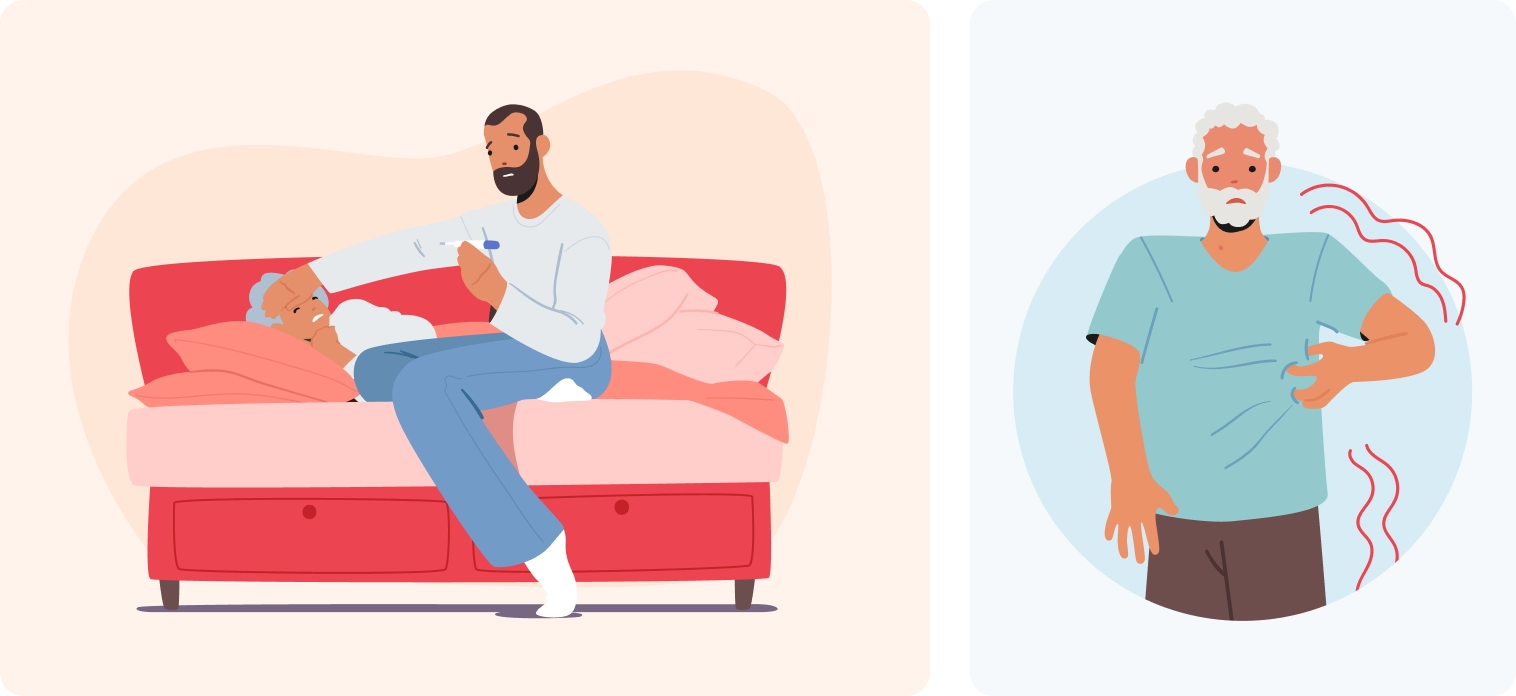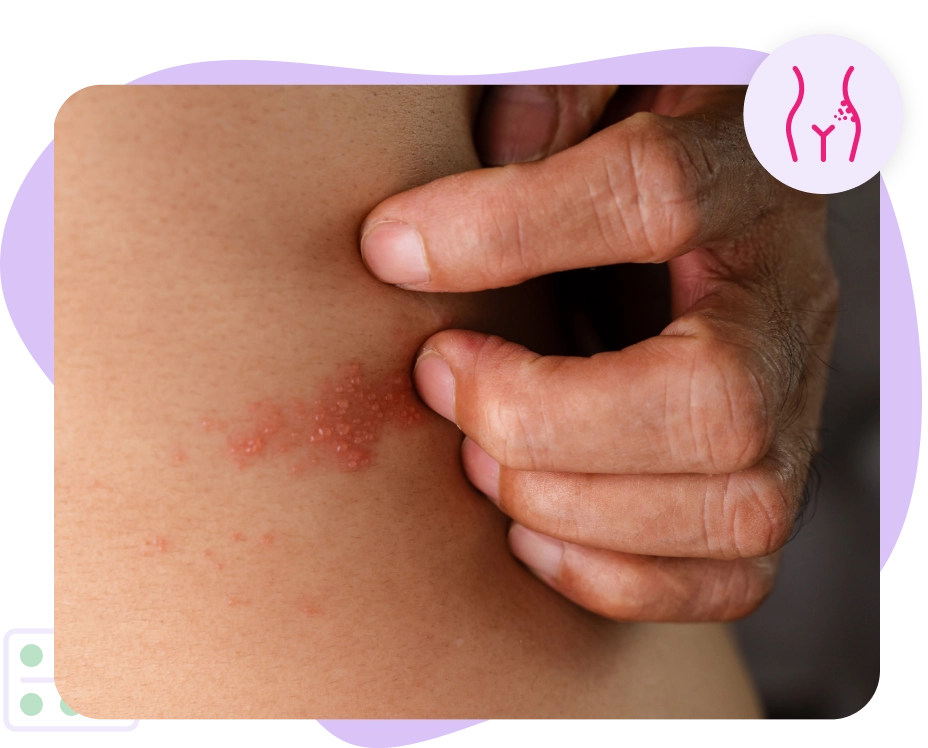Overview
Shingles, also known as herpes zoster, is a viral infection of the nerves beneath the skin that causes a painful rash. It is caused by the varicella-zoster virus (VZV)—the same virus that causes chickenpox and is in the same family as the viruses that cause cold sores and genital herpes. After a person has had chickenpox, the virus remains dormant in the body’s nerve tissues. Later in life, usually years or decades after the initial infection, the virus can reactivate and cause shingles.
Shingles can affect anyone who has previously had chickenpox, but it is more common in older adults after age of 50. As people age, their immune systems may weaken, increasing the likelihood of virus reactivation.

Causes
Shingles is caused by the reactivation of the dormant varicella-zoster virus (VZV). When the varicella-zoster virus reactivates, it travels along the nerve fibres to the skin’s surface, causing the characteristic rash and other symptoms.
Just because you’ve had chickenpox does not mean you will get shingles. Why the virus reactivates in some people to cause shingles is not fully understood. But the most common triggers are those that weaken the immune system such as:
- Stress
- Ageing
- Certain medicines and treatments such as Adalimumab, chemotherapy, JAK-inhibitors
- Medical conditions such as HIV/AIDS
Symptoms
The severity of shingles symptoms can vary from person to person, but the most common symptoms include:
- Pain and tingling often precedes (a few days before) the appearance of the rash
- Rash that appears as a single stripe or band of red, fluid-filled blisters that most typically wraps around one side torso, chest or tummy. But can also occur on the face, eyes, neck, genitals and other parts of the body.
- Itching associated with the rash
- Sensitivity to touch in the affected area, or sensitivity to light
- Flu-like symptoms (headache, fever, chills, fatigue)
- Nerve pain in the area where the rash was after it heals. This is pain is known as postherpetic neuralgia (PHN).
Treatment
There is no cure for shingles but you can avoid complications, help speed up recovery, and relieve your pain and itching symptoms by taking medicines within 3 days of the start of your rash.
While treating your shingles is important to keep the rash clean and dry. And you should get plenty of rest and stay hydrated to help your body’s immune response.
Typical treatments include:
- Antiviral medications such as Aciclovir
- Paracetamol
- Nonsteroidal anti-inflammatory drugs (NSAIDs) like ibuprofen
- Topical treatments or anesthetics containing zinc oxide or lidocaine
- Calamine lotion or oatmeal baths and lotions
- Applying cool compresses to the affected area
- Antidepressants or anticonvulsants for severe pain
PillSorted provides advice & NHS-funded treatment for shingles. Contact us for more information about eligibility.
PillSorted provides advice & NHS-funded treatment for shingles. Book an appointment now if you would like a consultation.

FAQ
What is Pharmacy First?
Pharmacy First is NHS funded program that allows pharmacists to supply prescription-only medicines, including antibiotics and antivirals if clinically appropriate, to treat several common health conditions, including shingles, without the need to visit a GP.
Can I get shingles if I’ve never had chickenpox?
No. You must have the chicken pox virus (varicella-zoster virus) already in your system to develop singles. However, if you come into contact with active shingles, they may pass the chicken pox virus to you, in which case you may get chickenpox, and then be susceptible to getting shingles in the future.
How long is shingles contagious?
Your shingles rash continues to be contagious until your blisters scab over.
If you have shingles, you should avoid physical contact with anyone who hasn’t had chicken pox, hasn’t received the chickenpox vaccine, or the shingles vaccine.
Can I get shingles more than once?
Yes, you can get shingles more than once.
Is there a vaccine for shingles?
Yes, there are two shingles vaccines available in the UK (Zostavax and Shingrix). They are available from the NHS for people age 65 and older and people 50 and over who have severely weakened immune systems.
How long do shingles symptoms last?
The rash stage usually lasts 2 to 4 weeks. If you experience pain from postherpetic neuralgia, the pain can persist for weeks, months, or even years.






















